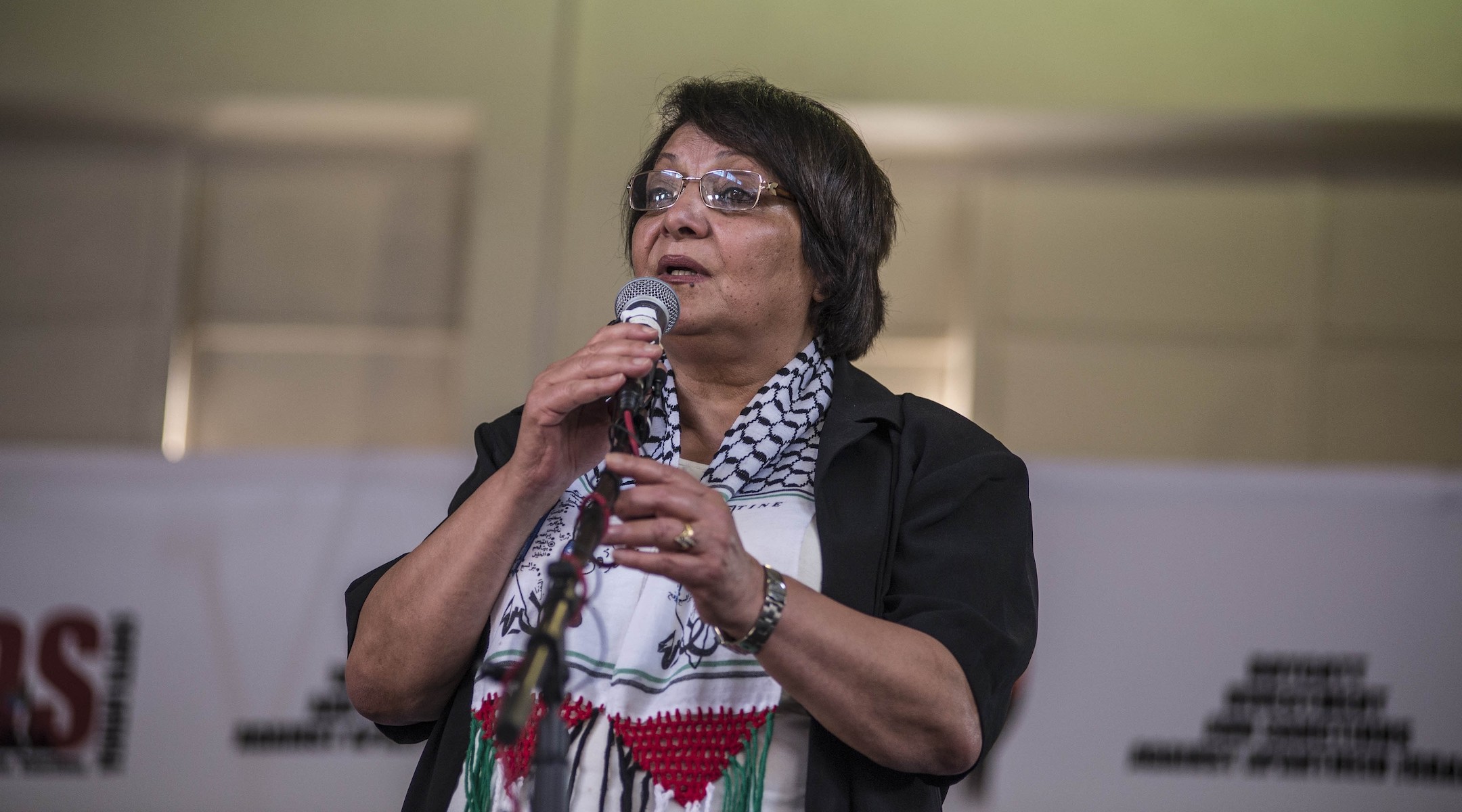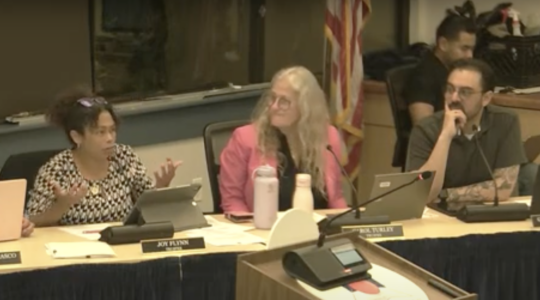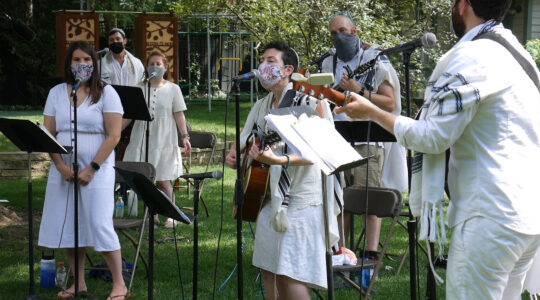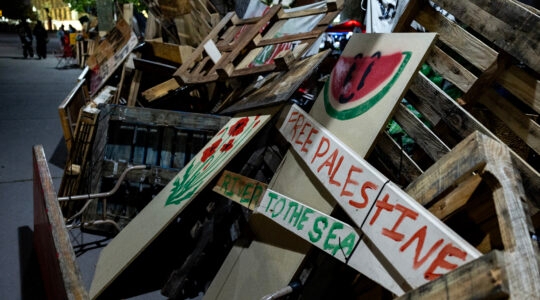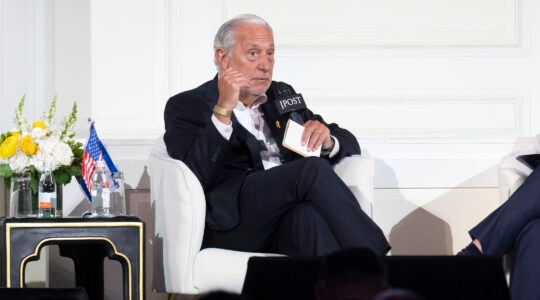(J. the Jewish News of Northern California via JTA) — After livestreaming for about 23 minutes on YouTube, Wednesday’s roundtable conversation from San Francisco State University featuring Palestinian hijacker Leila Khaled suddenly went dark.
“This video has been removed for violating YouTube’s Terms of Service,” a message said on the page.
The livestream had at least 900 viewers when it was shut down, abruptly ending when an old video of Khaled was being shown in which she defended her former activities.
“People have the right to fight those who occupy their land by any means possible, including weapons,” Khaled said in the video right before the feed stopped.
Titled “Whose Narratives? Gender, Justice and Resistance,” the virtual discussion was organized by San Francisco State’s Arab and Muslim Ethnicities and Diasporas Studies Department. It was to include a talk by Khaled, as well as a conversation afterward with Khaled and several other activists. An associate professor, Rabab Abdulhadi, served as moderator.
The day before the event, Zoom announced that Khaled’s participation would violate company policy and it would not allow its platform to be used as the host. Zoom disabled the registration link, and the Facebook link where people could sign up to attend became inactive on Wednesday morning, leaving organizers scrambling to find a new platform.
Event organizers also reached out to San Francisco State for help in finding a new webinar host and said on social media posts that the university was working with them.
In a letter to Jennifer Summit, provost and vice president for academic affairs, they wrote: “SFSU and CSU [the California state university system] are obligated to defend us against the vilification and smearing by an Israel lobby that is troubled by and seeks to silence Palestinian narratives and scholarship, teaching and advocacy for justice in/for Palestine.”
Neither YouTube, Facebook, San Francisco State nor the Arab and Muslim Ethnicities and Diasporas Studies Department immediately responded to a request for comment.
Abdulhadi said in status updates on her personal Facebook page that Zoom had removed the event link, and later reported that YouTube had pulled the plug during the conversation.
“Facebook has taken down the AMED event page and disappeared the Leila Khaled webinar,” she wrote.
The original event page showed several hundred people planning to attend the talk and over 2,000 people “interested.”
On its Facebook page Tuesday after the Zoom cancellation was announced, the department posted that it would be hosting the event over Facebook Live in what, at the time, appeared to be the department’s choice for an alternative hosting platform.
The post called for supporters to “post a 30-second video in any language of yourself supporting” the event. A Change.org petition expressing support for the event and “academic freedom on Palestine” had more than 1,800 signatures and counting as of Wednesday morning.
“Leila Khaled is a powerful, inspiring figure,” the petition read, calling the proposed event a “historic conversation [on] resistance, resilience, and gender.”
Khaled was part of a team that hijacked TWA Flight 840 on its way from Rome to Tel Aviv in August 1969. A year later she participated in the attempted hijacking of an El Al flight from Amsterdam to New York City as part of a series of simultaneous hijackings carried out by the Popular Front for the Liberation of Palestine.
Khaled was arrested in London, where the pilot diverted the plane, and later released in exchange for hostages from another hijacking. She lives in Amman, Jordan.
As a counterpoint to the Khaled event, the San Francisco Hillel was scheduled to host a “Vigil for Victims of Terror” on Wednesday featuring a prerecorded video of Uri Bar-Lev, the El Al pilot on board Khaled’s hijacked plane in 1970, as well as poems by San Francisco State students. According to the Hillel’s executive director, Rachel Nilson Ralston, the speakers were to include the SFSU president, Lynn Mahoney, and state Sen. Scott Wiener.
Commenting on Zoom’s decision, Ralston said, “The San Francisco Hillel community is relieved that Zoom, who provides such a vital tool to our students, will not allow their platform to amplify hatred or promote a known terrorist. We are grateful for the outpouring of concern and support. As always, we’re focused on supporting our students as they move forward with our ongoing efforts to improve San Francisco State University’s campus climate.”
The local Jewish Community Relations Council’s Middle East project director, Karen Stiller, said Zoom “made the commendable decision not to give hate a platform. Hosting this event would have been a serious ethical violation.”
The JCRC was among the vigil hosts along with the Anti-Defamation League and other local organizations.
JTA has documented Jewish history in real-time for over a century. Keep our journalism strong by joining us in supporting independent, award-winning reporting.
